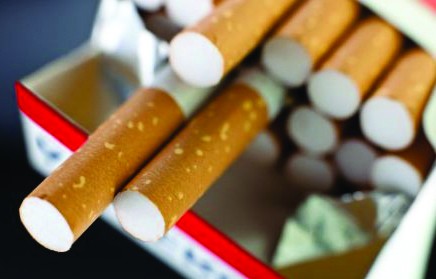MORGANTOWN – West Virginia once again fared poorly for its tobacco-control policies in the American Lung Association’s 2022 State of Tobacco Control report released this week.
Last year, the state scored four F’s and a D and did exactly the same this year.
“We’ve seen a lot of progress over the last 20 years,” said Molly Pisciottano, the ALA’s advocacy director for West Virginia and Pennsylvania. “But with the increase in new products, like e-cigarettes, we clearly have to do more to reduce tobacco use in West Virginia.”
The ALA looks at five law and policy areas. West Virginia earned its D grade for smoke-free air regulations. Smoking is restricted at government worksites and e-cigarettes are restricted at most parts of K-12 schools and on school property.
But the ALA is concerned with SB 12, which passed in 2021 and gives counties veto power over local health board rules and could lead to some smoking bans being overturned – something that hasn’t happened yet. The ALA urges legislators to preserve local control of smoking bans.
West Virginia earned an F from the ALA for its tobacco taxes. West Virginia’s taxes are $1.20 per pack of cigarettes, 12% of the wholesale price for “other” tobacco products such as chew, and 7.5 cents per milliliter for vape liquids.
Sen. Tom Takubo, R-Kanawha introduced SB 426 this year to raise the tax on tobacco products and e-cigarette liquids. The tobacco tax would go from $1.20 to $1.50 per pack.
That’s not enough of a hike for the ALA to support, Pisciottano said. “We would support at least $1. That’s what’s been shown, evidence-based, to be more effective at reducing tobacco use.”
A $1 hike leads to long-term savings in health care costs of $300 million, she said. It would produce new annual revenue of more than $75 million, with a corresponding hike on other products and e-cigarettes contributing another $27 million.
State budget officials have said tobacco tax hikes produce an initial revenue spike that falls over time as more smokers quit. Pisciottano said that doesn’t take into account the state money saved in improved health for Medicare and Medicaid patients, among others.
West Virginia also received an F for tobacco prevention and control program funding. The state spends $445,000 on this and receives $1.229 million in federal funds. The combined total, ALA says, is still well short of the CDC recommendation of $27.4 million.
The other two categories receiving F grades were access to cessation services and a ban on flavored tobacco products. Regarding cessation services, the state spends $1.04 per smoker on its quitline while the median investment per smoker is $2.41.
Banning flavored products is crucial to curbing teen smoking and vaping, the ALA says.
The ALA estimates West Virginia’s smoking-related health care costs at just over $1 billion per year, with 4,280 smoking-attributable deaths. The adult smoking rate is 22.6%, while 13.5% of high schoolers smoke and 40.6% use tobacco, including e-cigarettes. In middle schools, the smoking rate is 4.5%.
Here’s how West Virginia’s neighbors fared:
Kentucky, four Fs and a C in access to cessation services. Its cigarette tax is $1.10 per pack. Its adult smoking rate is 21.4%; 8.9% of high schoolers smoke and 29.7% use tobacco.
Maryland, two Fs, an A in smoke-free air, a C in tobacco taxes and a B in access to cessation services. Its cigarette tax is $3.75 a pack. Its smoking rates are 10.9% for adults and 5% for high schoolers, while 27.4% of high schoolers use tobacco.
Ohio, three Fs, an A in smoke-free air, a B in access to cessation service. Its tax is $1.60 per pack. Smoking rates: 19.3% for adults, 4.9% for high schoolers; with 36.7% of high schoolers using tobacco.
Pennsylvania, four Fs and a D in smoke-free air. Its cigarette tax is $2.60 per pack. Its rates: 15.8% of adults and 6.6% of high schooler smoke; 26.75 of high schoolers use tobacco.
Virginia, four Fs and a D in access to cessation services. Its cigarette tax is just 60 cents a pack. It rates are 13.6% for adults and 5.5% for high schoolers, with 22.5% of high schoolers using tobacco.
Tweet David Beard @dbeardtdp Email dbeard@dominionpost.com




